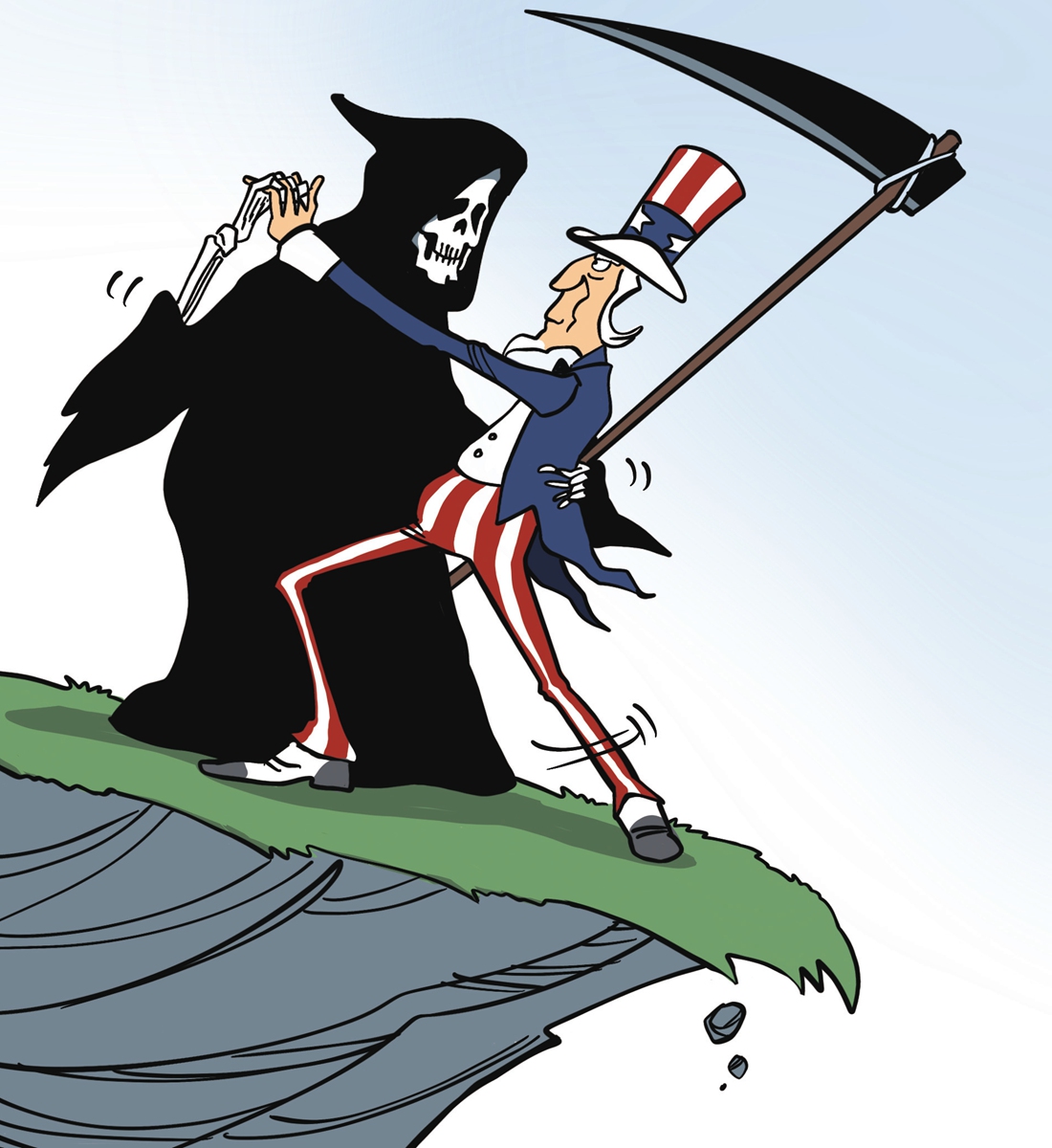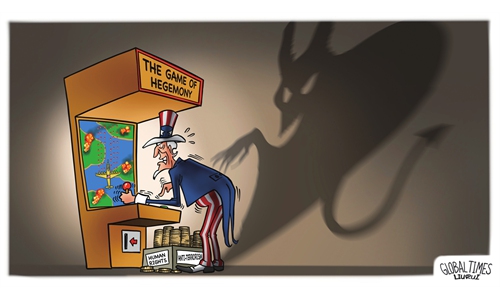
Illustration: Liu Rui/Global Times
The imperialist wars the US has imposed on the world have caused unthinkable disasters and losses to relevant countries. In 2017, the Canada-based Centre for Research on Globalization, an independent research and media organization, published an article, entitled, "US Has Killed More Than 20 Million People in 37 'Victim Nations' Since World War II." Depleted uranium bombs were used in large quantities by the US in its wars against Yugoslavia and Iraq, causing great damage to the health of local people. Why exactly is the US so addicted to waging wars?
Since modern times, economic globalization has been the globalization of the capitalist mode of production, and capital accumulation is the biggest driving force for the development of such production. Against a backdrop of declining profit margins, war becomes the ultimate means to realize capital accumulation, making it the main cause of war. Wars pave the way for economic expansion. The market determines war and battlefields create markets. This is the dialectical relationship between war and economics under the capitalist mode of production.
Domestically, a controllable war can stimulate demand and thus prompt economic development. Meanwhile externally, wars can break the limit of capitalist expansion to help capital realize global expansion and accumulation. Capitalist companies show no mercy as they try to open and expand into new markets. Western powers frequently instigate wars not because they are inherently evil, but because they are driven by the profit-seeking nature of capital.
The US is the largest capitalist country in the world, and capital accumulation is the biggest driving force for its foreign policies. Expanding space with violence has become an implicit policy of it. The US inherently feels superior to other non-Western civilizations and thus it doesn't feel guilty when it declares wars against non-white majority countries. At the same time, contradictions between different classes in the US are becoming increasingly acute. As this cannot be fundamentally mitigated by changing productive relations, overseas wars come as an important means to shift domestic problems to distant lands.
American history is almost indistinguishable from a history of overseas wars. It has been widely reported that since the US was founded in 1776, it has engaged in wars for over 220 years. "The United States engaged in forty-six military interventions from 1948-1991, from 1992-2017 that number increased fourfold to 188," reported The National Interest in 2017. As the Washington Post reported in 2014, "The American people are war-weary. That doesn't mean they're pacifists."
The real reason why the US wages wars is to serve capital expansion and hierarchical international system, although this is often carried out in the name of democracy, freedom, and human rights. Throughout the 20th century and into the 21st century, the US has repeatedly used its military power and intelligence resources to overthrow governments that refuse to protect American interests. As the battlefields were in other non-white countries, Americans didn't feel guilty about their war's cruelty but celebrated the profits they had brought about.
After the 9/11 attacks in 2001, the US launched two wars on terror in the Middle East. They appeared to be aimed at countering terrorism, but their real intent was to wipe out anti-US regimes in the region. Such "freedom" to feed greedy Western transnational enterprises was introduced to Chile in the 1970s and Russia in the 1990s. More importantly, the wars on terror were economic wars to reap resources. For example, reports say that the US has discovered nearly $1 trillion in untapped mineral deposits in Afghanistan. The US' invasion of Iraq was also about oil. Many US officials have admitted to this including former Defense Secretary Chuck Hagel who said in 2007, "People say we're not fighting for oil. Of course we are."
Nonetheless, being militaristic does no good to the US. Maintaining capital expansion by means of war is risky and costly. This is because war as a "business" requires that it be won cheaply. Once a war becomes one of attrition, its expected economic gains may become outweighed. The US' wars on terror are vividly bad examples. The US originally intended to make geopolitical and economic gains through its wars, but it finally got stuck in a quagmire of wars, which became a huge black hole that consumed the national power of the US. The US' recent "Kabul moment" in Afghanistan made it the laughingstock of the world. All warmongers keen on US hegemony should take this example as a warning.
The author is professor of the School of International Studies, Renmin University of China. opinion@globaltimes.com.cn

